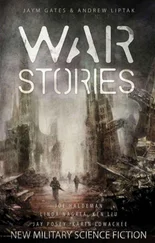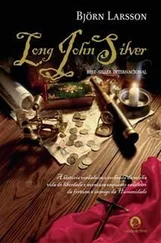Nico had his snobberies. He was the world’s best-dressed oncologist, with his pristine striped shirt and handsome tie peeping out from his lab coat. Did it make his patients (none of them in good shape) think he knew what he was doing? Once, when Marcus cut his finger in the kitchen, Nico had bandaged it, and Marcus had found himself oddly moved by the sureness of his hands.
“No one is predicting improvement in the job figures,” Carol said, looking up from a Sunday Review page. “They’ve stopped pretending to be upbeat.”
“In that memoir I was reading,” Marcus said, “the guy hardly mentions the Depression. Doesn’t bother with it. Can you believe that?”
“He got obsessed with his own story,” Carol said. “People do.”
“Anarchists aren’t supposed to be surprised if world markets self-destruct,” Casey said.
“Well, he didn’t own much,” Marcus said.
“Not like us,” Carol said.
Marcus was Googling Norman F. Remsen, who had no listing except one for the book, used, for $3.45, on Amazon. Marcus decided to look up Gandhi’s sex life, while he was at it. The writer of the most recent biography was quoted as saying he personally thought Gandhi and Kallenbach had been celibate soul mates, attracted maybe but loyal to their vows of continence.
Marcus noticed he was thinking of swiping Village Days and Nights from the house (Casey wouldn’t care) and taking it to Nico. He’d just call Nico up and say, I found this thing, wait till you see . Oh! He wanted to give Nico a present! Was that not the stupidest thing in the world?
Carol, who was now scarfing down a bowl of cereal, said, “You look better today.”
“It’s the mountain air,” Marcus said. “The stars at night.”
He had not even really noticed the stars at night, but he liked the idea of them. Had they been out when he and Casey were playing midnight Frisbee? He couldn’t remember.
“Yes, I can see you’re awed by it all,” Casey said.
“Awe is so overrated.”
The real lover of nature had been Nico, unlikely though that seemed to everyone. He used to drag Marcus on walks through Prospect Park at excessively early hours of the morning to check out the new bird arrivals with his binoculars. In spring there were warblers of many obscure kinds. Marcus could never get over the sight of the ever-chic Nico peering through those clunky lenses into the sycamores and oaks and the leaf-strewn dirt. How intent he was then, how solemn with interest. One bleak day in late February, when Marcus had refused to get up and go all the way to Central Park for new sightings, Nico came home thrilled about seeing the first spring migrant, the American woodcock. There were many jokes about the name (who else would be hanging out in the Ramble?) and photos on his cell phone of some splotchy brownish bird with a long beak doing a turkey trot. “I’m a happy man,” Nico said, and he was, glowing and grinning. It made Marcus think about what happiness was. For how long had Nico seen that bird — maybe ninety seconds? Of course, now it was enshrined forever in the memory of his iPhone, kept like any bit of joy in the brain. Not the real bird, but something.
Nico, who was nothing if not generous, had bought Marcus his own pair of binoculars, an allegedly very good kind. Marcus had taken them with him when he packed all his stuff, but what did he need them for? They seemed to be especially painful to look at because he had never used them. He really did not want to dwell on any of this. They were in a cardboard box pushed to the back of a closet, and there was no need to picture them.
He’d thought he was better. Why wasn’t he better? Why couldn’t he leave himself alone? He was worse than the memoir writer annoying everyone in Paris. What was so irresistible about freshening his own mortal agony every fucking second?
In these first months of this stage of his life, he had no choice but to marshal what powers he had to keep himself from slipping full-time into being a sorry specimen. A person who meditated was supposed to have some sense that the mind could occasionally control itself. In India, he’d heard about holy men standing on one leg for years, lying on beds of cacti, going naked in Himalayan snow. Marcus hadn’t seen any of that and was just as glad he hadn’t. But sadhus could do those things and more. No wonder Westerners hardly understood Gandhi.
What he remembered best about India was sitting in the café in Mumbai with Nico. This was before it was entirely clear something was about to happen, when a shimmering prospect just hovered in the air. Nico had laughed at an ordinary crack Marcus made about his job — he said Housing Court had a sitcom in every chamber — and Marcus saw the gathered lines around Nico’s eyes, the flash in them, the beam of his teeth. These commonplace signs of another human spirit embodied in a highly specific physical form seemed just so, so remarkable to him. Marcus found himself telling his only good landlord joke (what do landlords use for birth control? their personalities) — Marcus never told jokes! — and they were very jolly together, the two of them.
Earlier in the day — only hours before — Marcus had not been in a good mood at all. He was burdened by what he saw in India, by the case he’d lost at home (rent strikers evicted by well-connected sleazeball), and by existential exhaustion. When he turned the corner to walk toward the Gandhi museum, he was thinking, It’s too hot, what an insane country, I have to get out of here, and Where else is anything ever better?
At least it was cool inside, all polished wood and things behind glass. How weird Gandhi looked in some of those pictures, wizened, ghost-eyed, half naked. The Desert Fathers, fasting in their cells, had nothing on him. There was a photo from the Salt March, Gandhi on the road with a stream of white-clad followers behind him, ready to harvest salt illegally from the sea. The freaked-out British ended up putting sixty thousand people in prison when salt defiance spread over India. Mounted cops (Marcus read) charged one group and they saved themselves by lying flat on the ground. Whose idea was that? What Marcus wanted to know was: How long had those people trained themselves to do such a thing? When had they decided to be better than they ever thought they wanted to be?
Marcus had gotten lost twice before finding the museum, people were hard to understand and gave bad directions. Why should he find himself consoled there? But he did. He remembered very clearly now that he did.
When I was a boy, my father was always leaving us and coming back and disappearing again. When he was home, he managed to gamble away all the cash in the house, no matter where my mother hid it. Florida had a lot of temptations for a guy who couldn’t resist a bet. He did have moments of being jolly, of acting as if he got a big kick out of everything about us. He bought me a bike when he was flush, a Raleigh English racer, black with silver, very cool—“Here, Gerard, knock yourself out,” he said — and he sold it three months later. My mother threw him out for good when I started junior high. I wanted him back and I didn’t.
My mother was glad to have a steady job and she was very loyal to the hotel where she worked. People were, in those days. She was the head bookkeeper. “Ask Millie in the office” was such an all-purpose solution that Betsy, one of the hotel’s owners, gave my mom a pillow with this embroidered on it, as a tribute. And my mother loved that pillow. When I visited her at work, I was fed treats from the hotel kitchen — glistening hamburgers, hot caramel sundaes — but was not allowed to swim in the pool. Luís, the desk manager, played dominoes with me and let me show him my baseball cards.
Читать дальше












